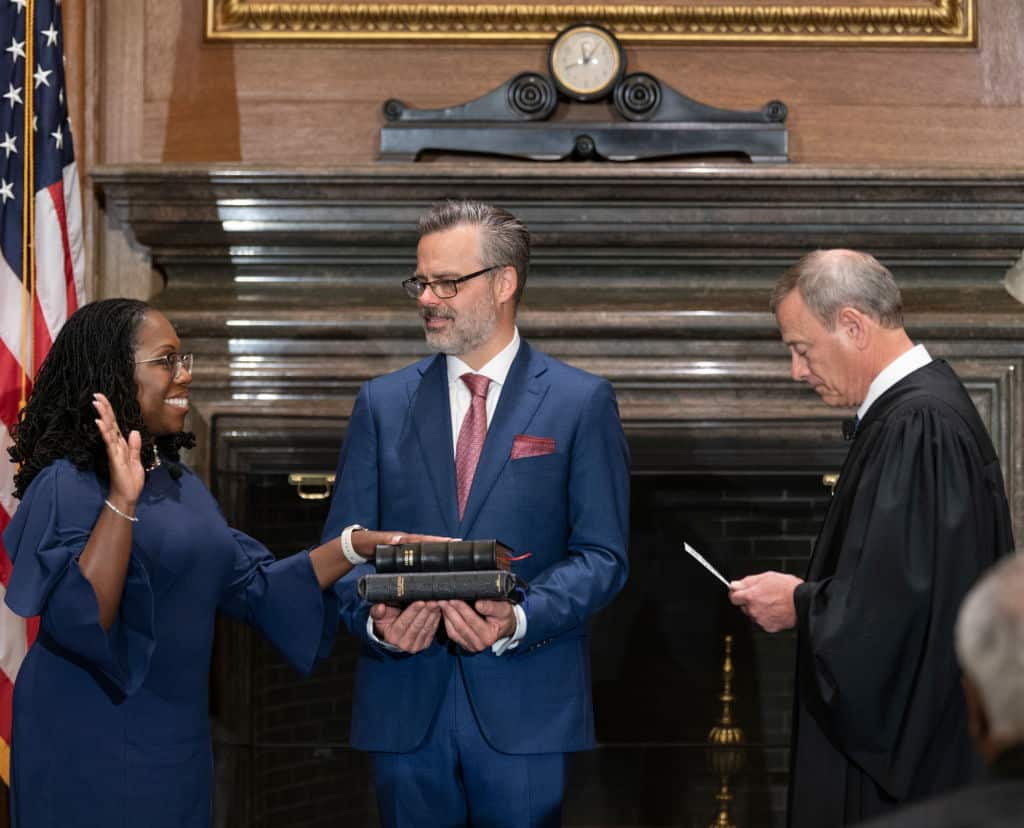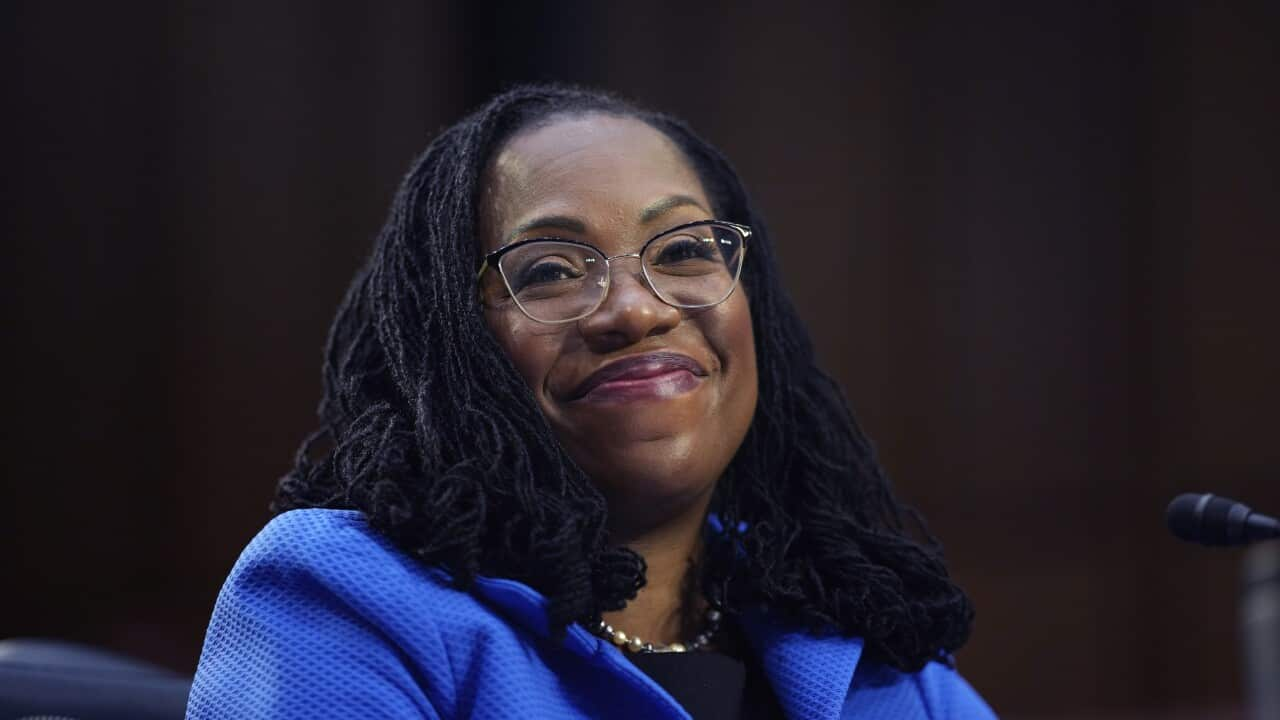The United States made history on Thursday as Ketanji Brown Jackson was sworn in as the first Black woman to serve on the Supreme Court.
The 51-year-old's appointment by Democratic President Joe Biden means white men are no longer in the majority on the nation's highest court for the first time in 233 years.
While her confirmation is a milestone, it won't change the 6-3 conservative majority on the court, which has come under fire for recent rulings broadening the right to bear arms, eviscerating abortion rights and limiting the government's power to curb greenhouse gases.
"As Justice Ketanji Brown Jackson takes her seat on the Supreme Court, our nation takes an historic step toward realising our highest ideals," Nancy Pelosi, the top Democrat in Congress, said in a statement.
"Amid this court's cruel assault on Americans' health, freedom and security, she will be a much needed force for equal justice for all."
Ms Jackson spoke only to say her oaths during Thursday's brief ceremony.
She had picked up support from three Senate Republicans during a gruelling and at times brutal confirmation process, delivering Mr Biden a bipartisan 53-47 approval for his first Supreme Court nominee.

Ketanji Brown Jackson (L) has been sworn in as the newest Supreme Court Justice, replacing the now-retired Justice Stephen G. Breyer. Source: Getty / Handout/Getty Images
The appointment presents an opportunity for his administration to pivot from a spate of bad news in recent months, with Mr Biden's poll ratings still languishing below 40 percent amid runaway inflation ahead of midterm elections in November.
Crucially, it has allowed Mr Biden to show the Black voters who rescued his floundering 2020 primary campaign that he can deliver for them.
At 42 days, the confirmation was among the shortest in history, although longer than it took to seat Donald Trump's last court pick during his presidency, Amy Coney Barrett.
As the final word on all civil and criminal legal disputes, as well as guardian and interpreter of the Constitution, the Supreme Court seeks to ensure equal justice under the law.
Four of the justices on the nine-member court are now women, making it the most diverse bench in history - although they all attended the elite law schools of Harvard or Yale.
Share


